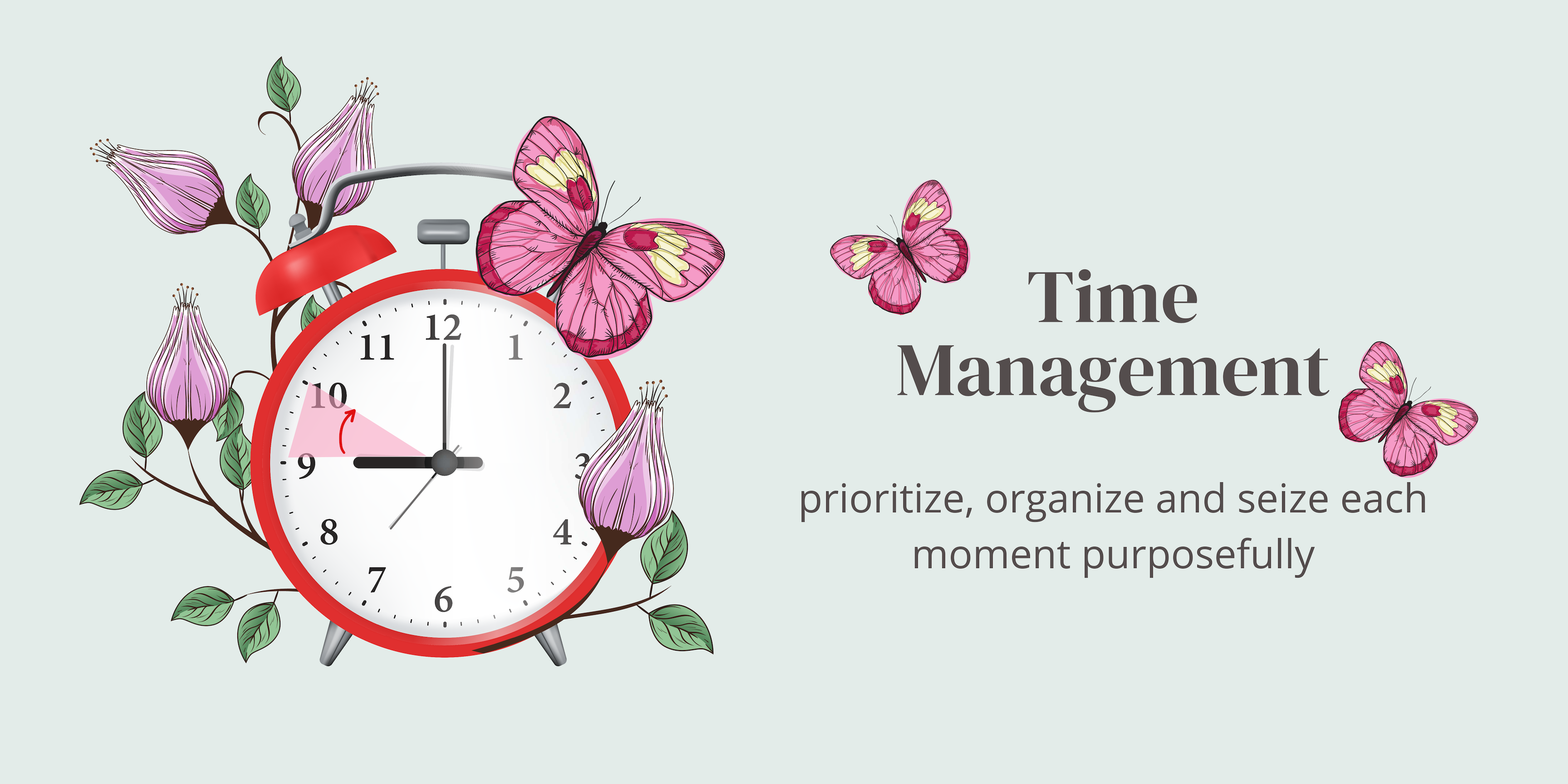
28 Dec Mastering time means mastering life
Time management is the cornerstone of productivity and success in both personal and professional realms. It’s the art of utilizing each moment effectively, prioritizing tasks, and allocating time wisely to achieve goals and objectives. This crucial skill empowers individuals to make the most of their limited time, enhancing efficiency, reducing stress, and fostering a sense of control over one’s life. In this introduction, we’ll explore why effective time management isn’t just about ticking off tasks—it’s about seizing opportunities, achieving balance, and unlocking the potential to lead a more fulfilling and purposeful life.
“Mastering time means mastering life—prioritize, organize, and seize each moment purposefully.”
Managing time effectively involves several strategies and practices:
Prioritize: Identify tasks based on urgency and importance. Use techniques like Eisenhower’s Matrix (dividing tasks into urgent, important, not urgent, not important) to prioritize effectively.
Set Clear Goals: Define clear, achievable goals—both short-term and long-term. Break larger tasks into smaller, manageable chunks to avoid feeling overwhelmed.
Create a Schedule: Use planners, calendars, or digital tools to schedule tasks and appointments. Allocate specific time blocks for different activities, including breaks and downtime.
Avoid Multitasking: Focus on one task at a time. Multitasking can reduce efficiency and quality of work. Complete tasks more effectively by giving them your full attention.
Time Blocking: Group similar tasks together and allocate specific time blocks for them. For instance, dedicate a set time for emails, meetings, or focused work.
Use Time Management Tools: Utilize apps or tools like task managers, calendars, or productivity apps to organize and track tasks, deadlines, and progress.
Learn to Say No: Prioritize your commitments and learn to decline tasks that don’t align with your goals or overload your schedule.
Take Breaks: Regular breaks improve productivity and focus. Incorporate short breaks during work sessions to recharge.
Evaluate and Adapt: Periodically review your time management strategies. Assess what works and what needs adjustment. Adapt and refine your approach accordingly.
Mindfulness and Focus: Practice mindfulness to stay present and focused on the task at hand. Minimize distractions, whether they’re digital interruptions or environmental disturbances.
Remember, effective time management isn’t about squeezing more tasks into your day but about optimizing productivity and balance. Find a system that works best for your workflow and lifestyle.



No Comments